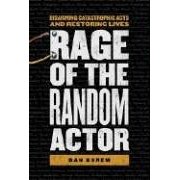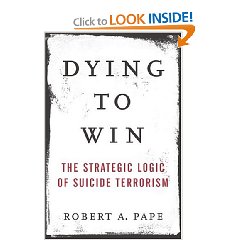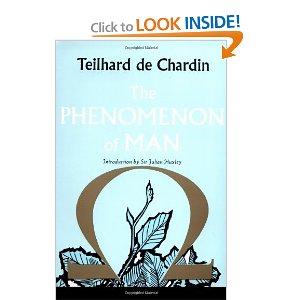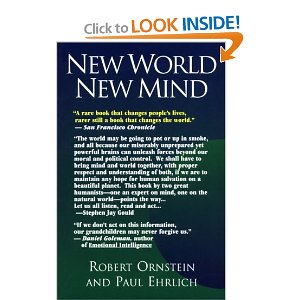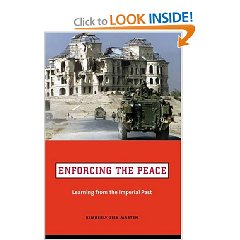This book has special meaning for me, at the #1 Amazon reviewer for non-fiction about global issues and national security and prosperity issues, because on the basis of real-life experience and reinforced by the 600+ books I have reviewed in just the past four years, I have become convinced that the US public must demand two Truth & Reconciliation Commissions if we are to reach the next century in any kind of good order: one must focus on the ills that America has bestowed on the world through its Cold War years (see Derek Leebaert, The Fifty-Year Wound: How America's Cold War Victory Has Shaped Our World as well as–among many others–Chalmers Johnson, The Sorrows of Empire: Militarism, Secrecy, and the End of the Republic (The American Empire Project), its support of 44+ dictators world-wide (see Ambassador Mark Palmer's Breaking the Real Axis of Evil: How to Oust the World's Last Dictators by 2025), and our predatory immoral capitalism (Cf. Perkins Confessions of an Economic Hit Man‘ Greider The Soul of Capitalism: Opening Paths to a Moral Economy and Prestowitz, Rogue Nation: American Unilateralism and the Failure of Good Intentions.
EDIT of 11 Dec 07: There are *so* many other books I have reviewed that could be listed here. The sad thing is that in 8 years Bush-Cheney, with the total abdication of Congress and the media, have led an apathetic nation into ruin.
We also need an internal Truth & Reconciliation Commission that could usefully start with the treasonous, treacherous, immoral, and disgraceful failure of local, state, and federal government in the preparation for and response to Hurricane Katrina, and go backwards from there to explore not only our abuse of minorities, but our abuse of the working poor (see Ehrenreich, Nickel and Dimed: On (Not) Getting By in America David Shipler, The Working Poor: Invisible in America and then go from there to the pernicious deliberate looting of the Commonwealth by a combination of military-industrial, pharmaceutical, and energy special interests; corrupt Congressmen, and a Wall Street that thrives on laundering drug money and picking the pockets of the middle class (Cf . Michael Ruppert, Crossing the Rubicon: The Decline of the American Empire at the End of the Age of Oil)
Most interesting to me, although not mentioned in this book, if one Goggles for truth and reconciliation USA one discoveres the Greensboro North Carolina Truth and Reconciliation endeavor, to explore past human rights abuses through slavery and related themes. This is a proven process that is clearly relevant to all countries, and especially to the 900-lb gorilla called America. The growing gap between rich and poor is the moral equivalent of global genocide and ecocide. If the rich wish to see their future generations survive, they had better start thinking about this important alternative to popular justice.
It is in this very American context that we can conclude that not only is this book at least as important to every American as it is to the rest of the world, but that the 9-11 Commission was a cover-up, a farce, that failed to engage the people, failed to discover all that could be known, and failed to hold anyone accountable.
I am most impressed by the diligence, scope, and coherence of this book. This is an extraordinary examination, based on global travel, deep research, and penetrating personal insight that is graceful and low-key, into the role of truth commissions, the great difficulties that accompany the creation and maintenance of such commissions, and the long-term implications of a successful outcome.
On page 23, after discussing the new emerging field of “transitional justice” the author declares that it “is certain that more countries will be turning to official truth-seeking in the coming years.” As we review books like Jonathan Schell's The Unconquerable World: Power, Nonviolence, and the Will of the People and Why They Hate Us: September 11, 2001…and Justice For Non and many others, two things are clear: 1) the dictators are not long for this world–I give them twelve years at the most; and 2) it is not just “dictatorships” that need commissions, but also those democracies that are fraudulent, among which I would include the United States of America (see my review of Jimmy Carter's new book, and the books recommended there, including Peter Peterson's Running on Empty: How the Democratic and Republican Parties Are Bankrupting Our Future and What Americans Can Do About It).
The author is to be commended for blending a reference work that concisely and clearly covers the 21 existing truth commissions at the time of the first writing as well as the 12 emergent between the hard copy and the new soft copy, and that brings out the reasons, the lessons, the benefits, and the costs. The most important benefit is mentioned on page 135, in which the author discusses the importance of honoring the past and overcoming what some call the conspiracy of silence. I would refer readers to Robert Parry's Lost History: Contras, Cocaine, the Press & ‘Project Truth' as well as Larry Beinhart, Fog Facts: Searching for Truth in the Land of Spin, and of course the recent classic, Weapons of Mass Deception: The Uses of Propaganda in Bush's War on Iraq. The list goes on.
The book has a practical side as well, identifying key factors in whether a truth commission will succeed or fail, chief among which is whether they get an adequate staff and budget, and whether there is a good process of engaging the public in defining the goals and the process.
The appendices and the index are quite professional, and overall this is a world-class reference work of enormous value to the possibilities of using transitional justice to achieve sustainable peace around the world.




